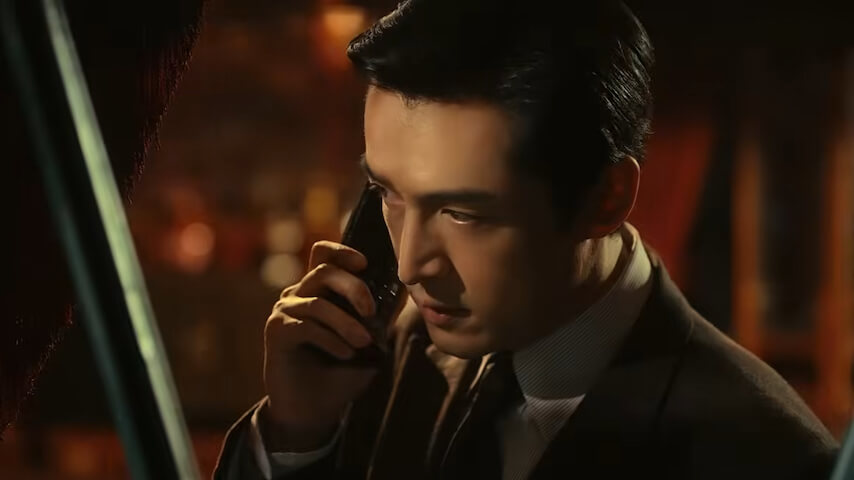Wong Kar-wai returns with the sumptuous, supersized Blossoms Shanghai
The Criterion Channel presents the master filmmaker's 30-episode series.
Screenshot: YouTube/Criterion
A major event starts on the Criterion Channel this week with the Stateside launch of the first original project by Wong Kar-wai in more than a decade. The writer-director of masterpieces like Chungking Express and In the Mood For Love hasn’t returned with another feature film (although some might wish he had), delivering instead the 30-episode original series Blossoms Shanghai, which premiered in China in 2023 to record-setting numbers but has taken this long to arrive on our shores. Based on the first six episodes sent to critics—only twenty percent of this exhaustive venture—this is an ambitious, lavish (of course) study of power and money in ’90s Shanghai, a gorgeously rendered drama that also suffers a bit from lack of focus and cohesive storytelling. The premiere is downright haphazard in its narrative construction, but subsequent episodes settle into the filmmaker’s captivating aesthetic if you let it, one that can be so intoxicating that it doesn’t matter that you wouldn’t pass a test about the plot.
The Shanghai Stock Exchange, which is the third largest in the world today, didn’t really launch as we know it until 1990, and the intense, immediate economic growth that followed created waves of immense wealth and crushing debt. This is the backdrop against which we follow the mysterious Ah Bao (Hu Ge), a sort of Jordan Belfort in this The Wolf Of Huanghe Road. In the premiere, the suave Mr. Bao is nearly hit by a speeding vehicle in what looks like a murder attempt, but it’s a bit of a fake out in that it implies a darker mystery than the upcoming episodes unpack.
Instead, Blossoms Shanghai becomes a pretty elaborate accounting of competing personalities on the upper tier of ’90s Shanghai. They all circle Bao in much the same way that various personalities orbited Jay Gatsby in F. Scott Fitzgerald’s beloved drama, and Wong also plays with that inspiration’s sense of the hollowness of opulence and how it can grind down humanity. A power broker in all forms of business, Bao is the most coveted guest at any grand opening or public event, but he’d much rather just have a nice bowl of porridge at the end of the night than a sumptuous meal, even if he’d probably look like a movie star while he was doing it.
On that note, Wong brings his old-fashioned sense of cinematic flourish to so much of Blossoms Shanghai, from the detailed costumes to the vibrant production design to the sharp cinematography from the great Peter Pau (Crouching Tiger, Hidden Dragon). There’s a sequence at an opening of a new restaurant called the Grand Lisbon that’s so overwhelmed with color that it becomes mesmerizing as the reds of fancy dresses by the arriving guests almost vibrate under the blinding neon lights of the marquees. In fact, Blossoms Shanghai becomes more enjoyable when one stops trying to track allegiances and financial dealings and just lets its craft wash over the frame.
 Keep scrolling for more great stories.
Keep scrolling for more great stories.
